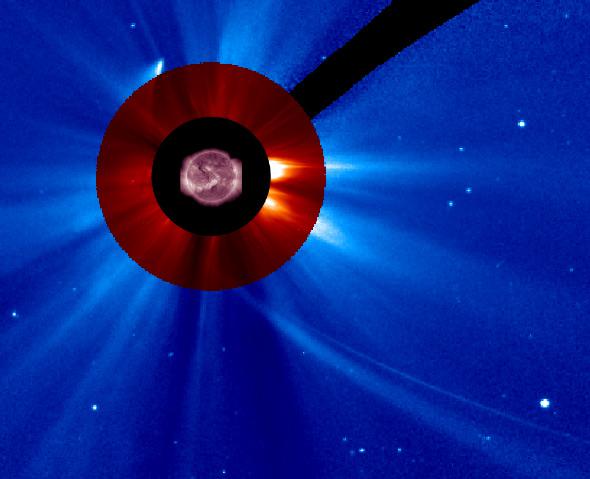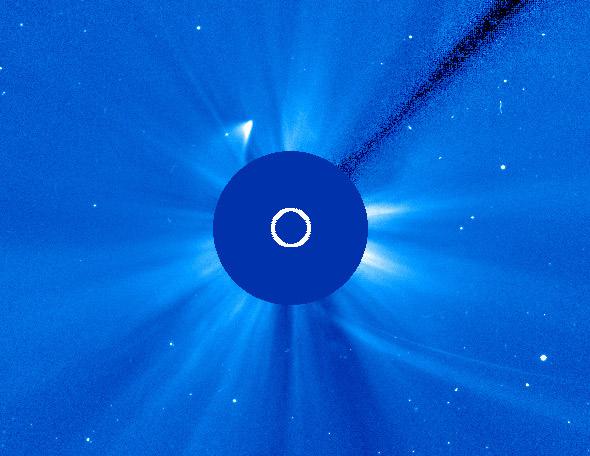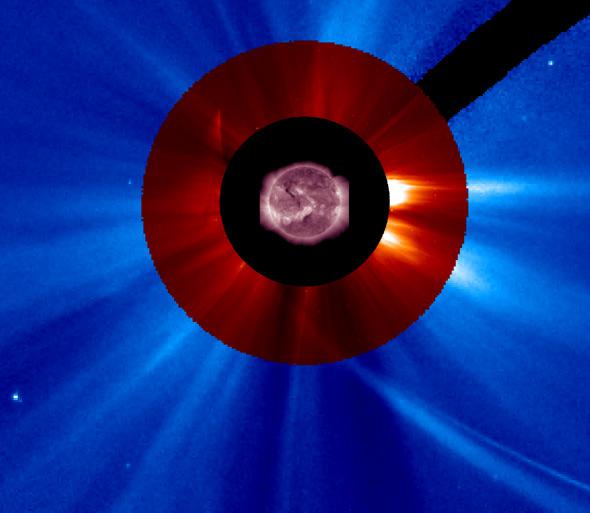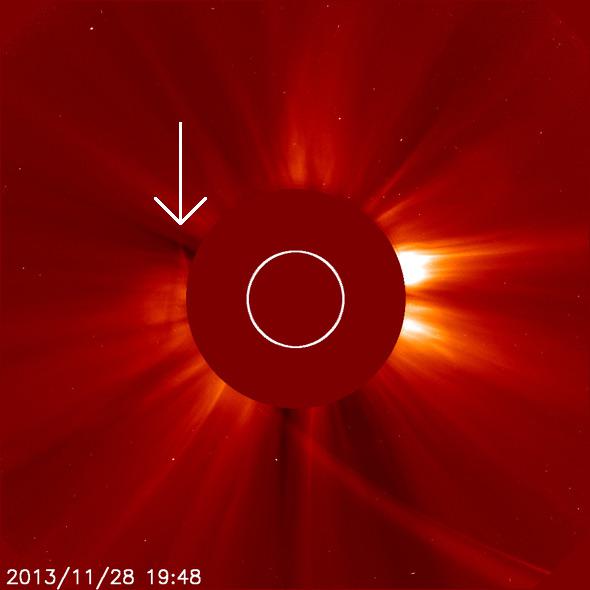[The previous post was getting overtaxed with updates, so I’m doing a new one here.]

Photo by NASA / ESA / SOHO / SDO / Helioviewer.org
[UPDATE (Nov. 28 at 23:30 UTC): Whatever is left of ISON is now visible in the wide-field camera on SOHO; you can see it poking its nose into the blue part (that’s the LASCO C3 camera; the red inner part is from LASCO C2, a narrower field of view). A bit brighter than I expected, but as always, patience, young padawans.]

Photo by NASA / ESA / SOHO
[UPDATE 2 (Nov. 29 at 02:30 UTC): This beastie continues to surprise. This SOHO image, from 00:18 UTC on Nov. 29, sure looks like something survived intact. At this point all I can say is the same thing I’ve been saying all along: predicting comets is like predicting cats. Good luck with that. For those keeping score at home, it got bright, then it faded, then it got all smeared out, then it came around the Sun smeared out, and then it seemed to get its act together again. At this point, I refuse to make any further conclusions about this comet; it seems eager to confuse. I’ve been hearing from comet specialists who are just as baffled… which is fantastic! If we knew what was going on, there’d be nothing more to learn.]

Photo by NASA / ESA / SOHO / SDO / Helioviewer.org
So comet C/2012 S1 (ISON) has passed the Sun, but not without cost: At some point previous to the rendezvous something happened to the nucleus (the solid part) of the comet, and by the time it made its final approach it clearly was not doing well. The normally compact head of the comet got smeared out, a pretty good sign the nucleus had disintegrated.

Photo by NASA / ESA / SOHO
The latest image I have right now is from the NASA/ESA SOHO Sun-observing spacecraft, from 20:30 UTC (2:30 p.m. EST) today:
The comet came in from the lower right to the upper left, whipped around the Sun, and has come out from the other side… or something has. As you can see, there is no centrally condensed bit, just more smeared out stuff. That looks like debris to me, or at best a very small and pale reflection of the splendor of what ISON was.
Well, as I (and many others) have been saying all along, with a comet like this you just have to wait and see what will happen. It held together a long time, got very bright last night, faded this morning, then apparently fell apart. This isn’t surprising; we see comets disintegrate often enough as they round the Sun. ISON’s nucleus was only a couple of kilometers across at best, so it would have suffered under the Sun’s heat more than a bigger comet would have.
Still, there’s more observing to do, and of course much data over which to pore. We’ve seen Sun-grazing comets before, and we’ve seen comets coming from the very deepest parts of the solar system before, but we’ve never seen a comet from that part of part of our neighborhood graze the Sun. We’ll learn a lot from this event, I have no doubt.
A lot of folks are sad the comet fell apart. I understand that; I never did get a chance to see it myself, and now it looks like I won’t. But the Universe cares not for our desires; it just does what it’s going to do. And there’s lots of science afoot here, so in fact I’m not sad at all; I’m pretty happy. This was an amazing event! And it may be a long, long time before we see the like again.
And, of course, Stay Tuned: I’ll keep updating if more news comes in.